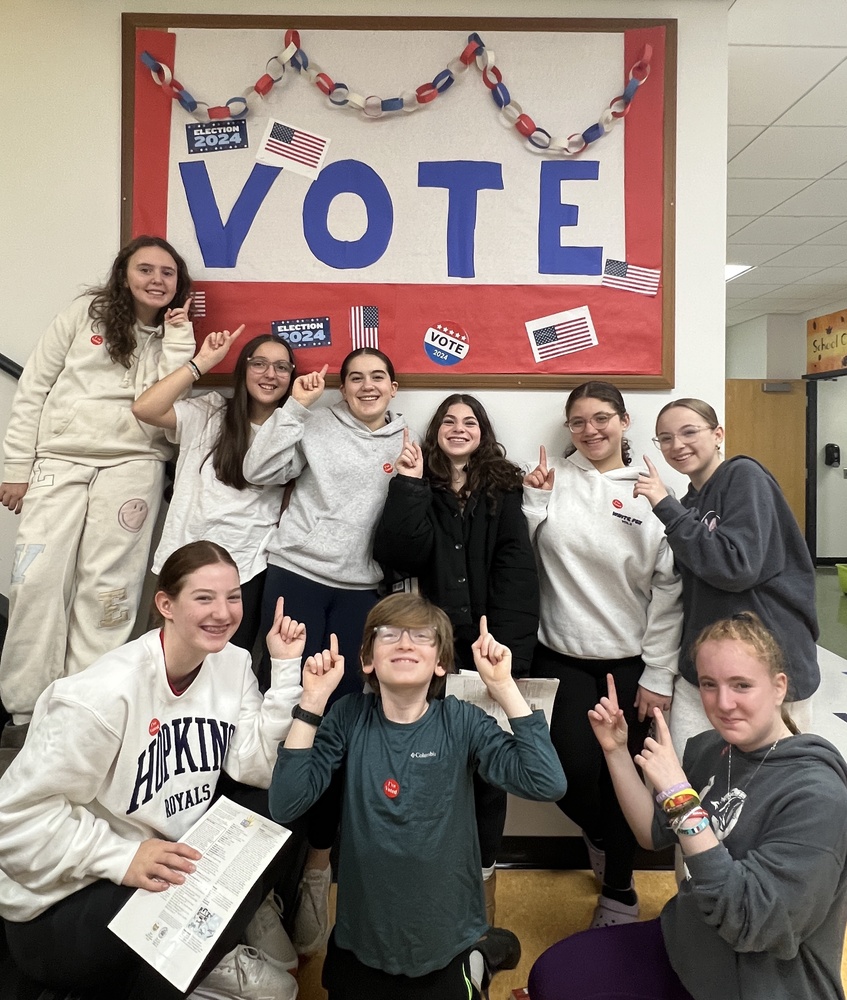This week’s election has stirred a range of emotions across our country, as well as within the Heilicher community. As I shared with our team — at times like these, when feelings can be heightened, our roles as educators and leaders become even more important. Our mission reminds us to foster a nurturing environment that encourages understanding, dialogue, and resilience, and to model those values for our students and each other.
Having those values enables us to guide students with compassion and steadiness, to be the calm in the storm — regardless of what is happening around us. Heilicher’s lived values are a great reminder that we have built a community where different viewpoints are celebrated. We actively teach students how to engage respectfully and thoughtfully with the world around them. It is a priority for me to continue to create a safe and supportive space where our students feel they can share their thoughts and process their feelings openly.
During unsettled times, Heilicher’s size and strong sense of community are true assets. We know our students. We have the time to deliver academic excellence while simultaneously balancing the needs of the whole child. As an educator, I’m familiar with the arguments in favor of the large, consolidated school model that is common in our nation: economies of scale and increased program offerings.
And yet, as the Northwest Regional Educational Laboratory noted: “Small schools tend to be superior to large schools on most measures and equal to them on the rest.” My own experience bears that out — at Heilicher we see consistently strong patterns in behavior and achievement, greater teacher connection with parents, and more teacher opportunities to collaborate with colleagues and other staff.
What does balancing the needs of the whole child actually look like? A whole child education prioritizes the full scope of a child’s developmental needs from academics to social, emotional, and cognitive development and physical and mental health. At Heilicher, it starts with offerings like that of our middle school social studies teacher, Annika Graif. In preparation for the election, she led students through lessons and activities to support understanding about the electoral process. They covered everything from political ads throughout history to how the electoral college works and how polling works. Eighth graders did research on third-party candidates, and students in grades 5-8 participated in Minnesota Students Voting 2024, the state’s K-12 mock election.
Preparing students to be informed citizens is one way to ensure our kids are ready to be productive members of the community. With the whole child approach, so is supporting their creative and athletic interests. We’ve had students win poetry awards from Keren Or and creative writing awards from Scholastic. Students interested in STEM get to participate in programs such as the ZOOMS animal enrichment design challenge at the Minnesota Zoo — Heilicher students have taken home awards (including first place last year!) over the past four years — and the Cosmic Leap Foundation’s Space Colony Competition — three of our 2024 fifth-grade teams received the competition’s highest rating. And our Heilicher Lions 7-8 soccer team captured the South Side Youth Organization Class A soccer championship just last week!
I look at the depth and breadth of those accomplishments, and I see a student population that has opportunities, is challenged, and is flourishing.
As I did with our staff, I’d like to invite our many Heilicher supporters to continue to lean on each other, stay grounded in our shared purpose, and remember that by fostering respect, kindness, and open dialogue, we can help build a hopeful, inclusive future for our students.

